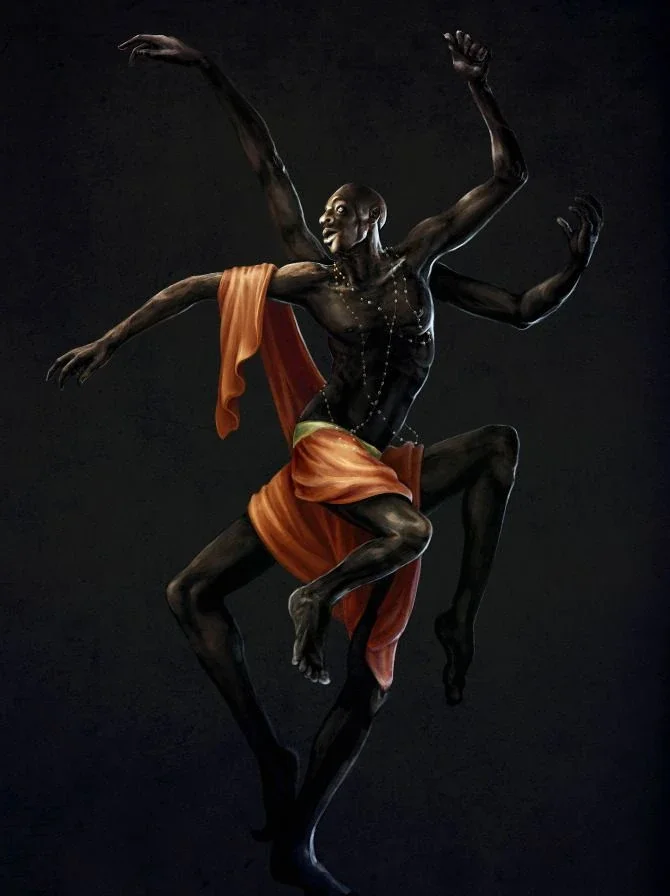Anansi, the trickster spider god, is one of the most beloved and enduring figures in West African mythology. Originating among the Akan people of Ghana, Anansi’s stories traveled across the Atlantic with enslaved Africans, embedding themselves in the folklore of the Caribbean and the Americas.
Myths and Morality
Anansi is a cunning and witty figure who uses brains over brawn to outsmart others—sometimes for justice, other times for selfish gain. In many tales, he challenges higher powers, steals stories from the sky god Nyame, or teaches lessons through his escapades.
Anansi stories often reflect societal values: the importance of cleverness, the dangers of pride, and the complexity of moral choices. His dual nature—as both a hero and a rogue—mirrors human behavior and encourages reflection.
Anansi in the Diaspora
With the transatlantic slave trade, Anansi stories were brought to the Caribbean and the southern United States. He evolved into figures like Br'er Rabbit and became a symbol of resistance, survival, and cultural identity.
In Jamaica, Anansi remains a cultural icon, celebrated in storytelling traditions, children’s literature, and theater. His tales serve as a means of preserving African heritage and promoting resilience in the face of adversity.
Modern Legacy
Anansi continues to inspire writers, artists, and educators. From Neil Gaiman’s Anansi Boys to animated children’s shows, the spider trickster spins his web across generations, reminding us of the enduring power of oral tradition.







